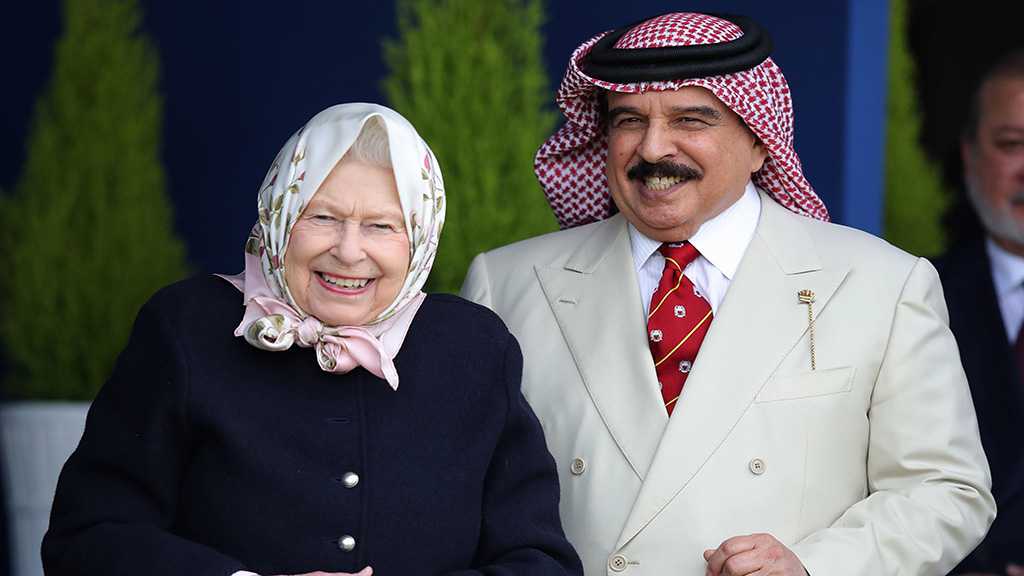
Queen Elizabeth’s Meeting with King of Bahrain Prompts Protests

By Staff, The Guardian
Campaigners condemned Buckingham Palace’s invitation to the king of Bahrain to attend the Windsor horse show this weekend, arguing that the UK should not provide a public relations opportunity to what they say is an increasingly repressive regime.
King Hamad bin Isa al-Khalifa met the Queen at the event on Friday, demonstrating a warmth of official ties despite the Middle Eastern state’s outlawing of political opposition and repression of its Shia majority since a failed 2011 revolt.
Ali Mushaima, the son of a jailed opposition leader, said he would demonstrate outside the event to draw attention to the detention of his father and other politicians jailed during the crackdown, which has lasted most of the decade.
Writing in the Guardian, the activist said: “Yet while the king socializes with dignitaries, my ageing father languishes in a cell in Bahrain, denied access to medical treatment for a range of serious illnesses.
“He is not alone: thousands of political prisoners fill the overcrowded cells of Bahrain’s prisons, and many others are deliberately denied medical care.”
The king regularly attends the prestigious five-day Royal Windsor horse show, which is a highlight in the Queen’s year. Pictures on Friday showed him meeting the British monarch and Prince Andrew, with the two heads of state laughing together as they watched the event.
Such is the closeness of the two monarchs that they have gifted each other horses from their respective stables; the king providing two to the Queen in 2013. The British monarch responded in 2017, giving him a horse in return.
However, since the failed 2011 uprising, aimed at removing the ruling monarchy, Bahrain has engaged in a lengthy suppression. Human rights group say Khalifa’s regime is using mass terrorism trials and the removal of citizenship to crack down on peaceful activists.
The regime has denied using torture or mistreating prisoners, and has accused Iran of inflaming Shia militancy in the country. There have been some sporadic outbreaks of violence since the revolt.
British arms trade campaigners added that the UK had supplied an estimated £100m worth of arms to Bahrain since 2011, and said Britain should be taking a different stance.
Andrew Smith of Campaign Against Arms Trade said the visit was “a moral disgrace” and argued that the UK should be supporting human rights campaigners such as Mushaima and “not with the regime which is denying basic rights”.
Arms sales range from £2.2m to £31m a year and include aircraft, small arms and ammunition. Last year, the UK also opened a £40m naval base in the country, at an event attended by Prince Andrew.
The London-based Bahrain Institute for Rights & Democracy (Bird) said the UK should dissociate itself from the island state, and complained that the Queen was involved in welcoming the king to the country.
Sayed Ahmed Alwadaei, director of Bird, said: “The UK government continues to look the other way and cover up Bahrain’s appalling rights record by investing in arms sales and a new naval base in return. This toxic relationship must come to an end.”
Comments
- Related News



